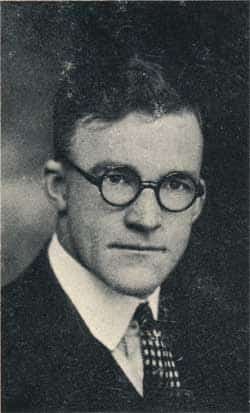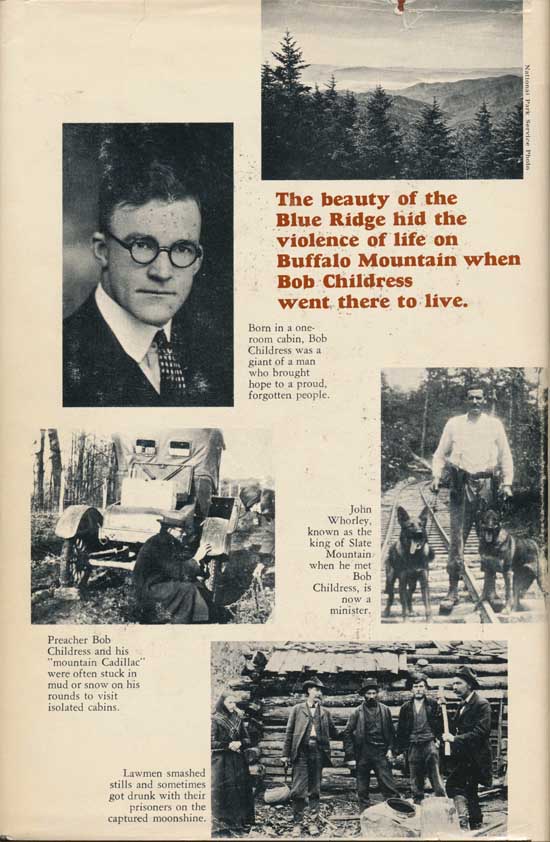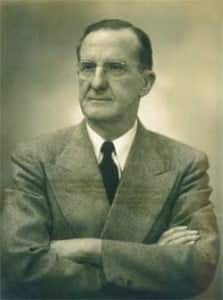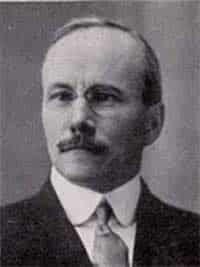What was life like for a pastor in the early days of this country? Today’s entry, an excerpt from A History Of Muhlenberg County, concerning the Rev. Isaac Bard [1797-1878], provides a good glimpse.
Chapter XVIII — ISAAC BARD
THE Reverend Isaac Bard came to Muhlenberg in 1823, then in his twenty-sixth year, and from that time for almost a half century led a very active life in the community. No local preacher was better known in his day than “Preacher Bard.”
It is quite probable that during his more active ministerial career he was heard by every citizen then residing in the county. Those who listened to his sermons evidently remembered that fact, for although he died thirty-five years ago all the older native-born citizens now living, and to whom I have mentioned the name of Isaac Bard, invariably remarked that they had heard him preach.
He devoted about half his time to ministerial work; much of the remainder he gave to his farm on Bard’s Hill, south of Depoy. He owned extensive tracts of timber lands in the Pond River country, on which he ranged his stock. It is said he was often heard calling his hogs with a fox-horn. He was a tall, muscular man, kind and generous to every person with whom he came in contact, and extremely gentle to all animals. One who knew him well says: “Preacher Bard was a scholar and a gentleman of the old school. He was one of the most sober looking and at the same time most pleasant men I ever met. I remember he always had cold feet and usually kept them wrapped up in heavy cloth, and frequently complained of the discomfort.”
Isaac Bard was a son of William and Mary (Kincaid) Bard, and was born in Nelson County, Kentucky, near Bardstown, January 13, 1797. He died at his home, seven miles west of Greenville, June 29, 1878. After spending a few years in Transylvania University, Lexington, he began, in 1817, a course in Princeton Theological Seminary, New Jersey, and on April 27, 1820, was licensed to preach. During the same year he entered in the Senior class of Union College, Schenectady, New York, from which school he was graduated in 1821, and shortly after returned to Kentucky.
On July 26, 1823, he was ordained in Greenville by the Muhlenberg Presbytery and immediately took charge of the Presbyterian Church at Greenville and the congregation at Mt. Zion, near Green River. In autumn of the same year he organized Mt. Pleasant Church, near Pond River. These three congregations remained in his charge until about 1833. During this period he built a brick church in Greenville on a lot presented by pioneer James Weir. The old brick house was long ago abandoned as a place of worship, and is now used as a warehouse.
After the year 1833 no congregation was solely under his supervision, for from that time, and continuing for many years, he extended his ministerial work among many of the Presbyterian churches in Muhlenberg and all the adjoining counties. In 1862, when the division of the Presbyterian church took place, Mr. Bard adhered to the Southern General Assembly.
On March 15, 1827, he was married to Matilda Miranda Moore, daughter of pioneer Maurice Moore. They were the parents of five children: Henry Clay Bard, Luther Bard, Mrs. Verona Mary (Carrol) Larkins, Mrs. Martha Amaryllis (R. P.) Howell, and Doctor LaFayette Bard, all of whom made Muhlenberg their home.
When, in 1823, Isaac Bard first came to Muhlenberg, many of the Revolutionary soldiers and other pioneers were still alive. He was a college man, who from childhood had been in touch with the progress made in various cities and centers of culture and refinement. His constant association with the pioneers and their children undoubtedly had an influence in modernizing their habits and practices; and on the other hand, living among these people, many of their characteristic manners and customs became his own.
Farms, in those days, were few and far between. The county was still regarded as a new country. Most of the sermons then heard by the local people were delivered by men who, although deeply interested in religious work and well versed in the Bible, had a limited knowledge of theology and of logic. When Mr. Bard appeared on the scene he found a good field for the exercise of his college education and religious training. The uneducated as well as the educated recognized his ability as a “sermonizer.”
He kept pace with the times at home and abroad, and in some respects was ahead of his day. He lived during that period of the country’s history when “freedom and liberty” were known to be permanently established, and fighting for them was therefore no longer one of the principal objects in life. Local political questions, although discussed from the time the county was organized, were rapidly becoming more and more the leading topics of the day.
Mr. Bard was always interested in good books, and in the course of years accumulated a large library. He was very systematic and kept a written record of many of his transactions. His residence burned in 1876, two years before he died, and all his books and papers were destroyed except two of his own documents. One of these is a diary and the other contains some notes on local history. Isaac Bard probably never expected that these records would some day form a contribution to a printed history of Muhlenberg County.
The first of these personal documents is Bard’s Diary. This is a leather-bound book of two hundred pages, written with a quill pen. Although many pages are faded, the records are still legible. The greater part of this journal is devoted to the years 1848 to 1851; but it extends, with occasional entries, down to 1855, after which date about a dozen more records are added, bringing it to May, 1872. The diary evidently was written for his own gratification and convenience, and was not intended for publication. The second of Isaac Bard’s documents that has been preserved is what he designates a “Lecture on Muhlenberg County.” This is a sketch that seems to have been prepared for a lecture delivered some time after 1870.
EXTRACTS FROM BARD’S DIARY.
Tuesday, November 7th, 1848: Rode to Rumsey and voted for Gen. Taylor to be president. May the Lord deliver our country from despotism and monarchy under the false name and disguise of Democracy. O Lord, have mercy on us as a nation, give us the grace of repentance that we may see our wickedness, turn from our national sins and seek forgiveness of Thee through the blood of atonement. O Lord, choose our rulers, preside in our destinies and make us a great people, distinguished for righteousness, love for pure civil and religious liberty and that we may grow in grace and in the knowledge of our Lord and Savior Jesus Christ.
August, Monday, 7, 1849: Mr. Donaldson and I went up to Greenville. I voted for Edward R. Weir, the Emancipation candidate. While here I met with Col. Wm. McNary and we got into an argument on Emancipation. At last we got on the Scriptures on this subject and he said he would go and get a Bible and read it and show I was in error. He got the Bible and read it and I answered him by reading several verses, Ex. 21 ch. and Leve. 25 ch. on jubilee and extended my remarks on the scope of the Old and New Testaments. Some private questions, not manly, were asked me by G. C. and J. E., and also H. R. made an unbecoming remark of private nature. The Rev. John Donaldson was present and heard what passed, which took place under a locust tree in the court yard. Before I left the Rev. Jones and ______ came up. The former opened his Bible and the latter drew out a written paper. Both were about to answer me and some person remonstrated and got them to go away. Mr. Donaldson, standing on the outer edge of the crowd, said he heard several say, “They had better let Bard alone.” When I saw Jones and ______ come up and ready to speak, I got on a bench and remarked publicly: “I wish it understood I do not seek controversy, but I do not care how many come and speak, I will answer them.” Maj. McNary said: “Well, I do not think that that remark is called for.” So terminated this little debate. Several told me afterwards: “They made nothing off of you. You outdone them and you are able to do it.” Donaldson said some of them said: “When they go to the Scriptures they have no business with Mr. Bard.” O Lord, bless my speech and may much good and no evil come of it. Help us to love our neighbor as ourself.
Note: Our Through the Scriptures and Through the Standards sections have now been replaced by RSS feeds which appear at the top of right-hand column.
Also on this day:
In 1868, plans were laid for the Presbyterian Hospital in New York City.
 When the Master has a big work to do, He raises up a big man to do it. The Lord does not always choose a man from places such as those where men would look. Such a man, from a most unlikely place, is the subject of this story. This man of God’s choosing was born in the mountains of Patrick County, Virginia, not far from the present Blue Ridge Parkway. He was born in a one-room mountain cabin, born into a large family, his people the direct descendants of Scots-Irish immigrants, and born into deep poverty and ignorance.
When the Master has a big work to do, He raises up a big man to do it. The Lord does not always choose a man from places such as those where men would look. Such a man, from a most unlikely place, is the subject of this story. This man of God’s choosing was born in the mountains of Patrick County, Virginia, not far from the present Blue Ridge Parkway. He was born in a one-room mountain cabin, born into a large family, his people the direct descendants of Scots-Irish immigrants, and born into deep poverty and ignorance. A bunch of the boys dropped in with guns at one of Preacher Childress’ first services in the Virginia mountains. They told him to leave the country, or else.
A bunch of the boys dropped in with guns at one of Preacher Childress’ first services in the Virginia mountains. They told him to leave the country, or else.



